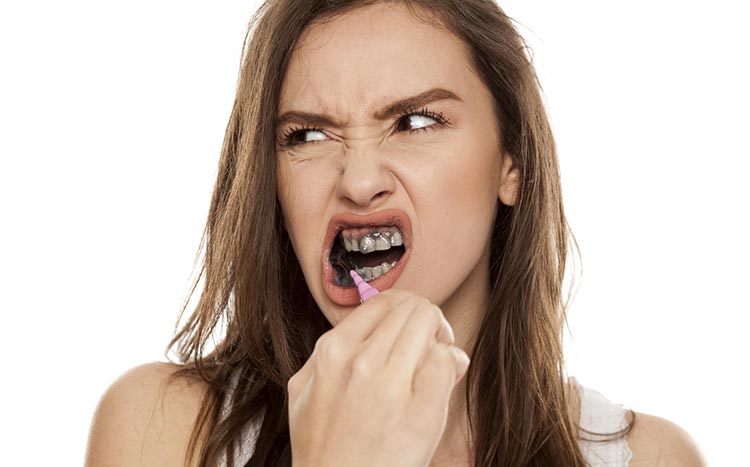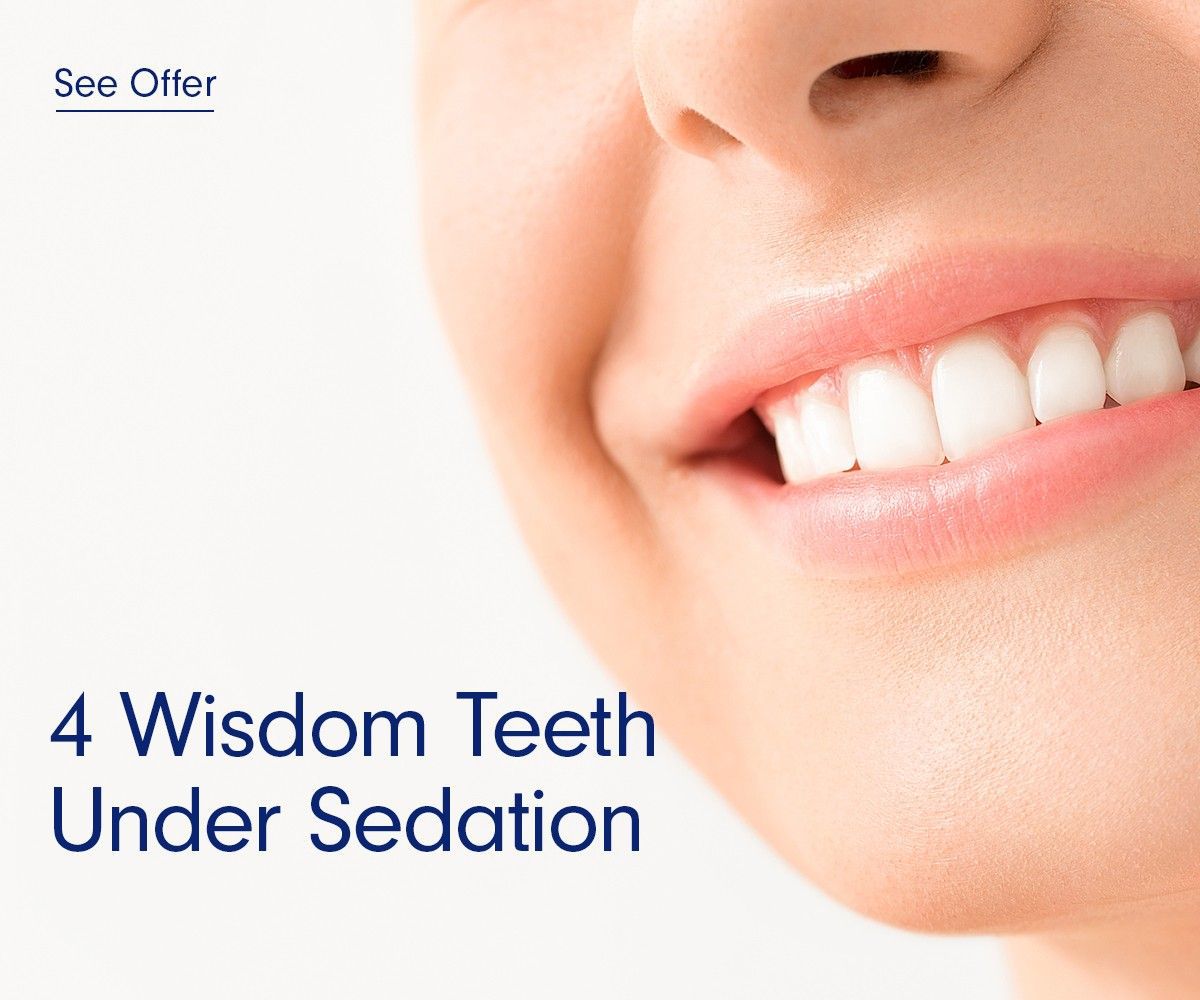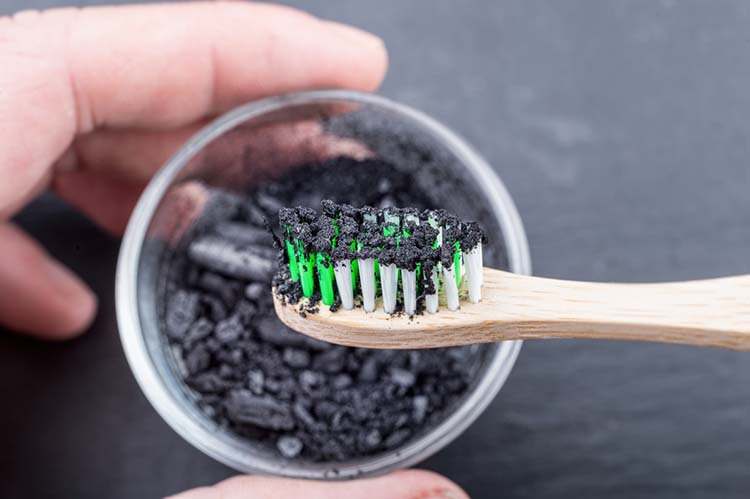
We all want a perfectly white smile, but it can be hard to achieve, and even harder to maintain. Our teeth are naturally prone to staining, and even the best dental hygiene isn’t always enough to keep your teeth as pristine and bright as you want.
Often, people turn to DIY methods of teeth whitening before they shell out for professional treatment. Trying to save money is understandable, but it’s important to know whether or not the at-home, “natural” whitening solution you’re considering is safe and effective before you start. The charcoal teeth whitening method is one of those at-home treatments that’s been around for some time, but just recently has become extremely popular. It purportedly works, but whether or not it’s better than a professional whitening treatment is still not proven.
What is Charcoal Teeth Whitening?
First, if you’ve never heard of this method or you aren’t familiar with it beyond the name, you probably think it sounds crazy to use black, messy charcoal to make your teeth white. This is a reasonable assumption, but rest assured that it won’t leave your mouth stained black or your teeth looking gray. This is because the treatments use a special type called “activated” charcoal. Activated charcoal is not the same as the stuff used for cooking or drawing. Instead, it’s a very finely milled black powder made from substances such as:
- Coal
- Coconut shells
- Olive pits
- Bone char
- Sawdust
This might sound unappealing, or even dangerous, but it’s completely safe to ingest and is often used in medical situations as a detoxifying agent. The “activated” part stems from the fact that it’s processed with very high heat, which changes its internal structure and makes it extremely porous. The high temperature also gets rid of any potentially dangerous substances that could be present.
Activated charcoal has a unique ability to bind toxins and draw them out, which is why it’s often used in emergency rooms to treat overdoses or accidental poisoning. This ability to “suck up” toxins is also why it’s used to whiten teeth.
Does Charcoal Whitening Actually Work?
Most activated charcoal powders and toothpaste make claims that they can do things like:
- Whiten teeth
- Remove plaque
- Prevent bad breath
- Block bacterial growth
The question is whether or not this is true. One important thing to note about activated charcoal is that your body cannot absorb it. Once it’s bound to the toxins, you know that it’s all being washed away when you rinse your mouth.
Unfortunately, there are no official scientific studies to prove whether or not activated charcoal is a good way to whiten your teeth. However, there is an overwhelming number of stories, testimonials, and before-and-after photos that all tout charcoal’s effectiveness at keeping your teeth white.


Regular Price:
$2100
There’s no need to wait until they become a problem individually. Take advantage of our limited time offer and get all four wisdom teeth removed at once, under sedation for only $1,299.
What Are the Benefits of Using Charcoal?
There are a few other potential benefits of using activated charcoal to whiten your teeth besides delivering a brighter smile.
Plaque Removal
When you coat your teeth in a charcoal paste, it allows a process called adsorption to happen. Adsorption means that it basically attracts plaque and microscopic bits of debris in your mouth, and those bits get stuck to the paste. The charcoal forms a kind of film together with those bits, and then it all gets rinsed away when you spit out the paste.
Better Mouth pH
How acidic your mouth is can help or harm your dental health. When your saliva is too acidic, you’re at risk of tooth enamel erosion and cavities. The opposite of acid is alkaline, and activated charcoal is alkaline. This means that it can raise the overall pH levels in your mouth, which makes you less prone to cavities and unhealthy teeth. A higher pH can also help combat gum disease and bad breath.
No Harsh Chemicals
Some people worry about the traditional methods of teeth whitening due to the chemical process used. When you use activated charcoal, you’re using natural, organic substances.
What Are the Potential Risks of Charcoal Teeth Whitening?
While this all sounds pretty good so far, it’s important to understand that there are potential downsides as well. Most importantly, this treatment is not yet approved by the American Dental Association (ADA), and here are a few reasons why.
Enamel Damage
Despite the fact that most charcoal powders you can purchase are finely milled and appear soft, the truth is that they are still gritty. Scrubbing your teeth with a gritty paste could scratch or erode your enamel, which can lead to dental problems and more staining down the road.
Long-term Safety
Activated charcoal is used sparingly in plenty of medical situations, but the truth is that experts simply don’t know what the potential long-term effects of brushing with it may be. Its abrasiveness also means it could irritate your mouth and gums.
Medication Interference
Whether you’re using regular toothpaste or charcoal paste, you’re inevitably going to swallow a little bit of it. While this isn’t a big deal in most cases, if you take prescription medications, you should check with your doctor to make sure it’s okay for you to use charcoal on your teeth. Activated charcoal can block the absorption of a long list of medications.
How Do These Treatments Compare to Professional Whitening?
Ultimately, you should keep in mind that professional whitening treatments are done by trained experts who know precisely how to achieve the best possible results for your unique situation. DIY whitening methods have mixed results and no research backing them, but a professional whitening treatment follows strictly regulated guidelines.
The results of a professional treatment are also much faster and more pronounced than at-home methods due to the process used. Some people may not mind a long, slow process, but most people prefer to see results as quickly as possible.
What Else Do I Need to Know About Charcoal Whitening?
While charcoal whitening isn’t necessarily bad, it is a method that should be approached with caution and understanding. Dentists recommend using the paste as more of a leave-on mask that coats your teeth instead of scrubbing to minimize any abrasiveness. It’s also important to pay attention to any increased sensitivity in your teeth and gums.
Professional whitening services are the preferred treatment for a brighter smile, but activated charcoal does show potential as a budget-friendly, at-home option in between professional treatments. However, as of now, only time and research will tell whether the treatment is a worthy alternative.
